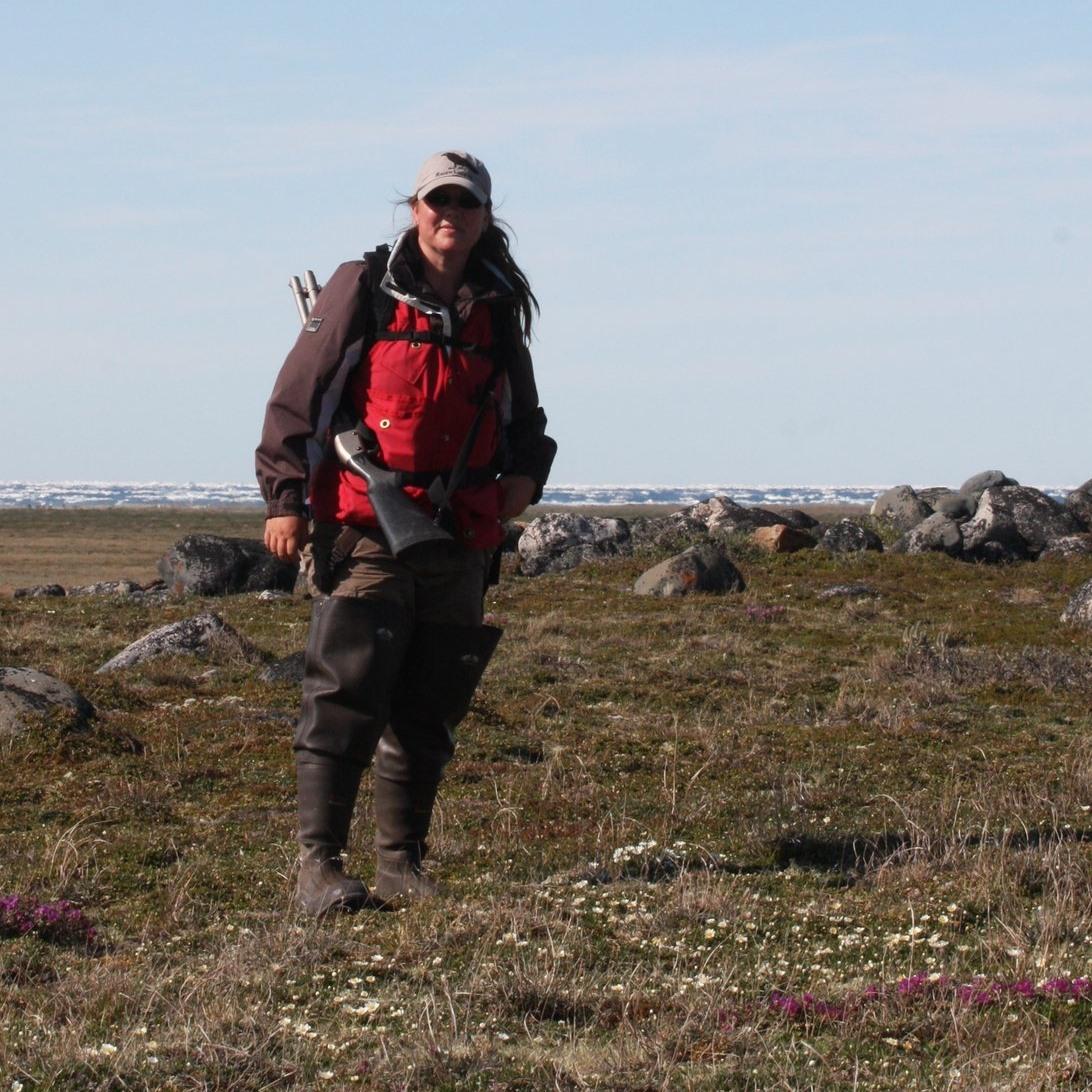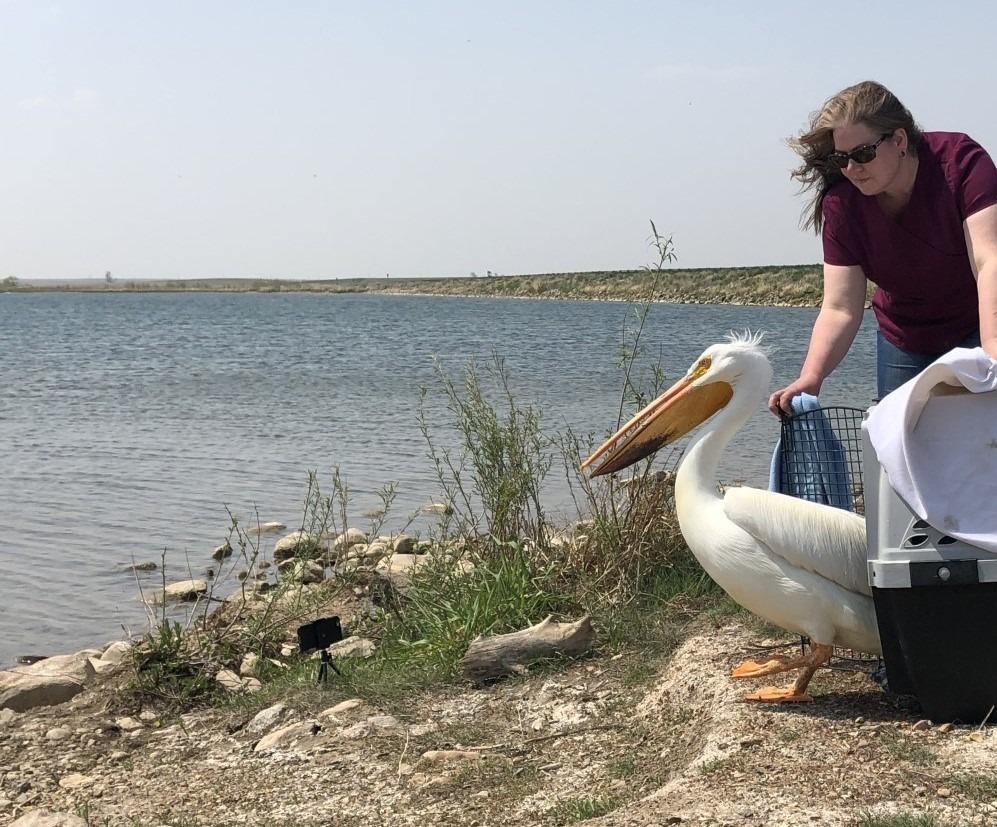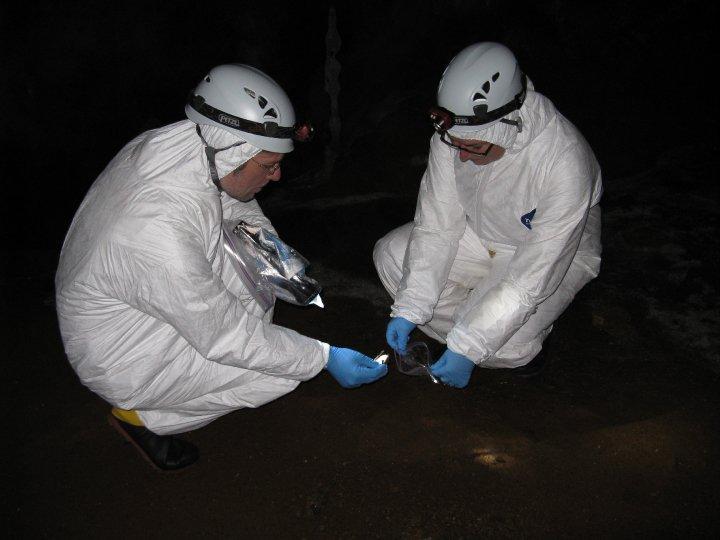Melanie Whalen
Tell us a little about yourself:
My formal education includes Animal Care Husbandry, Wildlife Biology, as well as a Registered Veterinary Technologist program.
I have worked for 20 years in wildlife research and as a wildlife disease research technician for provincial governments and the Canadian Wildlife Health Cooperative, primarily focusing on rabies vector species, Chronic Wasting Disease in ungulates, and White-Nose Syndrome in bats. After being involved in the first case of White-Nose Syndrome in Canada, this lead to further research and surveillance of the disease and subsequent applications in wildlife capture and rehabilitation for provincial governments. In these roles, I rehabilitated a variety of species for provincial governments and have worked doing wildlife capture and rehabilitation and species restoration for the past 17 years.
What is your fondest wildlife rehabilitation memory?
There are so many. Each successful release encourages me to keep going to get more animals back out into their habitat.
What challenges have you faced in your wildlife rehabilitation work?
Educating others around translocation of wildlife. The impacts this has on disease transmission as well as success rates for wildlife that are moved outside of their established territories
Has the IWRC aided in your journey as a wildlife rehabilitation? If so, can you explain how or give an example?
Definitely. The training and network that IWRC has been imperative to helping along my career.
Tell us about your experience as a wildlife professional:
Currently, I am the Director of Animal Care and Wildlife Services at Calgary Wildlife, where we rehabilitate all species, with an special emphasis on bats, beavers, bobcats and raptors. This work includes non-invasive research on bats that enter rehabilitation with a specialized bat hospital with indoor and outdoor flight pens that I developed to promote care and conservation of the species. I have specialized training in wildlife capture and in the rehabilitation and reintroduction of bats, beavers, otters, moose, wolves, black bears, lynx and woodland caribou but have rehabilitated most species found across Canada. I am a certified Beaver Wetland Specialist and offer non-lethal beaver management services to mitigate beaver damage by non-lethal methods. I collaborate with biologists to develop beaver reintroduction opportunities in neighbouring provinces to help restore and enhance wetlands. I currently work with agricultural landowners and habitat restoration groups in Alberta to establish rehabilitated beavers which help restore riparian zones and recharge water tables.
What brought you into wildlife rehabilitation work?
Most of my work as a government field wildlife biologist focused on wildlife disease. While working for the Canadian Wildlife Health Cooperative, a colleague and I discovered the first case of White-Nose Syndrome in Canada and coordinated the country’s first surveillance program. It was devastating to see the impact this pathogen had on bat populations. Being in the field for wildlife research, I witnessed the effects of human activity and disease on these populations. This experience prompted me to become involved in wildlife rehabilitation, specifically focusing on bat rehabilitation.
What wildlife species do you rehabilitate?
I rehabilitate everything but the majority of my experience is in rehabilitation of bats, beavers, eagles, bears, porcupine, bobcat, moose and caribou.
What common misconception about wildlife rehabilitation would you like to dispel?
That wildlife rehabilitation isn’t having an impact.
What do you hope for the future of wildlife rehabilitation?
I hope to see wildlife rehabilitation continue to build credibility and be used as a tool to help with conserving species.
What message would you like to share with other IWRC members and wildlife rehabilitators across the world?
Every animal teaches us something to help future animals. And it’s so important to take care of ourselves so we can continue to help other animals and teach new rehabbers coming into the field to pass along valuable knowledge.
Are you passionate about wildlife conservation and rehabilitation? Consider becoming a member of the International Wildlife Rehabilitation Council (IWRC):
https://theiwrc.org/product-category/membership/
As a member of the IWRC, you’ll have access to a wealth of resources and support!





Leave a Reply
You must be logged in to post a comment.